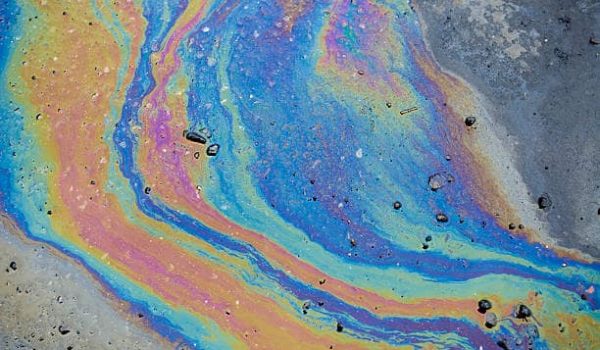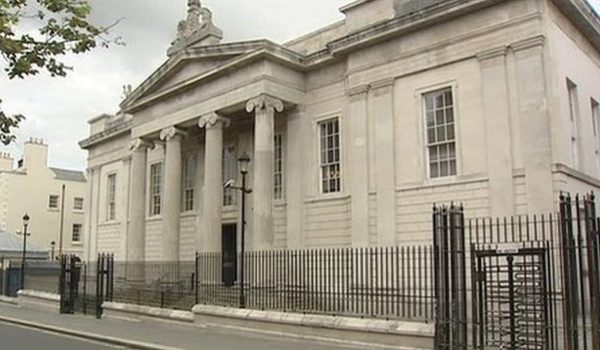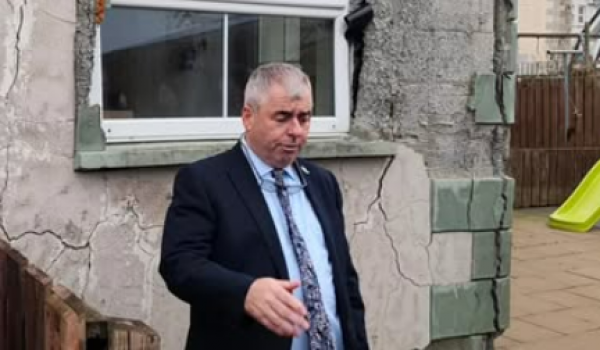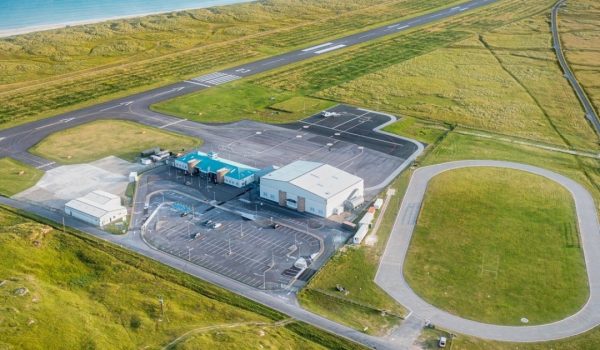
Irish Water in acknowledging the publishing of the EPA’s report today, says it is on track to end the discharge of raw sewage in Kerrykeel and Kilcar by 2023 while the construction of a new sewerage scheme at Burtonport is scheduled to commence in 2022.
Plans are also progressing for a new sewerage scheme for Ramelton, Milford and Rathmullan as well as a new wastewater treatment plant in Moville
In addition, plans are in place to develop the Falcarragh Sewerage Scheme and Coolatee Housing Scheme.
Irish Water says one of their key priorities is compliance with the Urban Wastewater Treatment Directive.
Statement in full:
Irish Water’s consistent progress in upgrading wastewater treatment and eliminating the discharge of raw sewage to Ireland’s rivers, lakes and coastal areas is benefiting communities and enhancing the environment throughout Ireland.
In Donegal, investment in wastewater infrastructure in Bundoran, Convoy, Glencolmcille, Killybegs and Ballybofey/Stranorlar has led to improvements in water quality, while also supporting housing and economic development in these areas.
The latest EPA Urban Wastewater Treatment Report, published today, shows the progress being made, while also highlighting the need for continued investment in our essential wastewater services.
In the last six years, Irish Water has prioritised areas where it can support housing and development and have the greatest environmental impact, particularly in locations where raw sewage was discharging into our rivers and seas.
Over 60% of raw sewage discharges have been eliminated since 2015 – and replaced with treatment capacity for the equivalent of 120,000 people. As a result of the targeted investment in wastewater infrastructure, communities around Ireland are now reaping the rewards of a cleaner environment, safer bathing waters and greater opportunities for the development of new homes, businesses and tourism.
To date new wastewater treatment plants have been built in 17 locations where raw sewage had been discharged into the sea for decades. By the end of this year construction will have started in an additional 14 locations, with a further eight projects due to get underway next year and the remaining nine from 2023 onwards. This means that the majority of raw sewage discharges are on track to be removed by the end of 2025.
In Donegal, Irish Water is on track to end the discharge of raw sewage in Kerrykeel and Kilcar by 2023 with works commencing on the construction of two new wastewater treatment plants. The Gweedore Sewerage Demonstration Scheme is also under construction with the installation of the pumping pods, associated works and wastewater treatment plant upgrade expected to be completed by early 2022.
The construction of a new sewerage scheme at Burtonport is also scheduled to commence in 2022. Irish Water is also progressing with plans for a new sewerage scheme served by a single wastewater treatment plant for Ramelton, Milford and Rathmullan and expects work to commence in 2023. In addition, plans are also in place to develop the Falcarragh Sewerage Scheme and Coolatee Housing Scheme, which are at detailed design stage, with a likely construction start date of 2024. Irish Water, in partnership with Donegal County Council, is progressing plans for a new wastewater treatment plant and associated infrastructure at Moville.
Irish Water is also working in partnership with Northern Ireland Water to upgrade wastewater treatment plants and sewerage networks in Lifford, Carrigans and Killea in Donegal. The works are being undertaken as part of a major cross-border project; the Shared Waters Enhancement and Loughs Legacy (SWELL) project, which has been awarded €35m under the EU’s INTERREG VA Programme, managed by the Special EU Programmes Body (SEUPB). Network improvement works in Omeath in Louth are also scheduled to take place later this year. The works in Lifford, Carrigans, Killea, and Omeath will improve water quality in Lough Foyle and Carlingford Lough.
Since the establishment of Irish Water, Donegal has had one of the highest levels of investment of any county in Ireland, receiving almost €300 million on water and wastewater upgrades since 2014. Irish Water has already completed projects in Donegal to end the discharge of raw sewage and improve treated wastewater quality being returned to the environment in several locations throughout the county. Such works include the completion of sewerage schemes in Bundoran, Convoy, Dungloe, Glencolmcille, Glenties, Killybegs and Saint Johnston. An upgrade to the Ballybofey-Stranorlar Wastewater Treatment Plant is also complete. The Letterkenny Sewerage Scheme including network improvements is now substantially complete.
Inlet works and storm water storage works are also scheduled for commencing at Castlefinn, Clonmany, Creeslough and Newtowncunningham in 2022.
Sewer rehabilitation works have also been completed in Ballybofey, Stranorlar, Buncrana, Carrigart, Downings, Kilmacrennan, Lifford, Milford, Mountcharles, Ramelton, Raphoe, Dunfanaghy, Carndonagh, and Saint Johnston (in progress), with over 11 km of sewers restored to Grade 1 condition.
Nationally, the majority of all raw sewage discharges are on track to be removed by the end of 2025.
In addition to ending the discharge of raw sewage by building infrastructure where none previously existed, Irish Water has also been continuing with its programme of upgrading existing wastewater treatment plants and networks in towns and villages throughout Ireland. In 2020, a total of 10 wastewater treatment plants were built or upgraded (two built and nine upgraded), directly benefiting the equivalent of over 20,000 people in these communities while also protecting our wider environment. The number of plants on the Environmental Protection Agency’s Priority Action List is also continuing to fall, currently down to 97 from 148 in 2017.
Anthony Skeffington, Regional Operations Manager of Irish Water, commented: “Having a modern, sustainable and functional wastewater network is critical in order to protect our environment and to support housing and economic growth in the years ahead. Irish Water is working closely with the EPA and our other partners, including local authorities, to ensure this can be delivered in the most efficient and sustainable way through the use of cutting edge technologies, science and engineering expertise, and meaningful engagement with local communities around Ireland.
“There is no doubt that challenges remain. Much of the infrastructure for safely collecting and treating wastewater around the country has suffered from decades of under-investment. But Irish Water has a plan in place to address these deficiencies and we are making real progress. Continued investment will be required in the coming years to build a modern, fit-for-purpose wastewater network but we are confident that we are on track to achieving that aim.”
One of the key priorities in Irish Water is compliance with the Urban Wastewater Treatment Directive. Due to the work undertaken to address long-standing issues with many wastewater treatment plants, the compliance rates have increased from 71% in 2014 to 93% in 2020. In Donegal the investment in new and upgraded wastewater treatment plants in Bundoran, Killybegs, Glencolmcille, Convoy, and Ballybofey/ Stranorlar has brought treated wastewaters back into compliance in 2020.





